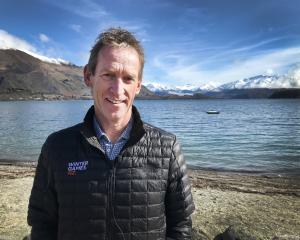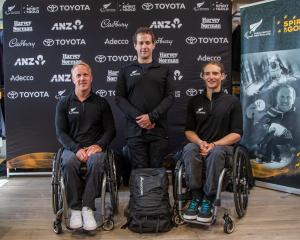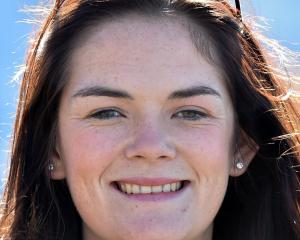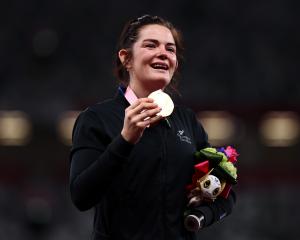
The sport and exercise medicine professor will be attending his 11th Olympics.
He has worn different masks during that time.
The 76-year-old has been a chef de mission, a team doctor and a medical commissioner — but nothing beats "standing on the blocks", he said.
He represented New Zealand at the Tokyo Olympics in 1964 and reached the semifinals in the 200m butterfly.
Two years later, he claimed gold in the same event at the British Empire and Commonwealth Games in Kingston and picked up a bronze in the medley relay.
The trip to Tokyo in 1964 was his first major overseas outing.
"This is where it all started, so it is a bit special. It completes some sort of loop," he said.
"It has certainly been a fascinating ride and a privilege."
Gerrard had been to Australia twice and had swum in a final in the 1962 British Empire and Commonwealth Games.
But he was new to Olympic competition and was amazed at how well-prepared Japan was for an Olympics, given the toll World World 2 took on the nation.
"The people of Tokyo were just amazing. I have lots of very fond memories from the time I had there.
"I believe [those games] were well ahead of their time in terms of electronics and all the refinements."
"There will never ever be another opening ceremony like there was that night at Tokyo Stadium."
The poignant sight of Yoshinori Sakai igniting the Olympic flame that night left a big impression on Gerrard.
Sakai was born on the day an atomic bomb was dropped on Hiroshima.
"He was born in a city about 50km to the north and he came into the stadium and lit the Olympic flame.
"We didn’t know the back story until some time later. But he was a survivor from that nuclear holocaust.
"It is those special memories that you have of the true meaning of coming together."

His tasks will include Covid-19 testing and serving as an independent observer during doping control.
The restrictions and protocols put in place to prevent the Olympics becoming a Covid-19 super-spreader will arguably crush some of the essence of the Games.
The athletes, administrators, officials and everybody involved will not be free to move around.
Gerrard’s own "activity plan" is rather limited. There is the commute from the accommodation to the pool, and the commute from the pool to the accommodation, to get excited about.
The Olympics are often billed as a great coming together for the world. But that will have to be done from the sanctuary of people’s bubbles this time.
"I’ll miss being able to drop in and watch another sport. But there will be no opportunity for athletes to mix and mingle and to support each other."
Despite the backdrop for the Games being "stark and sterile", Gerrard firmly believes the competition will be as exciting as ever.
"I heard someone suggest there will be no sightseeing and no shopping and my comment was there are no gold medals awarded for shopping."
Covid-19 has been a major theme leading into the Games. But another big story to emerge has been the selection of Laurel Hubbard in the New Zealand weightlifting team. Hubbard (43), who tran sitioned from a man to a woman in her mid-30s, will be the first openly transgender athlete to compete in the Olympics. It has polarised opinion and Gerrard has been openly critical of the International Olympic Committee.
"I believe the IOC have got this horribly wrong," Gerrard said.
"The transgender female who has transitioned after puberty carries a huge advantage and I do not understand how the IOC made the recommendations that it did.
"The performance differ ences between men and women range between 10% and 30% depending on which event you are looking at.
"I mean, really, that is the fundamental basis on which we have divided sport. "We have binary sport. We have events for women and events for men and that is a segregation that is based on two things. One is fairness and the other is safety."
Gerrard said as a scientist, he felt he had an obligation to speak out. While he firmly stands on the side of inclusivity, he has also spent a lot of time crusading for fairness in his roles with the World Anti-Doping Agency. He also worries the biological female athlete’s voice has being ignored in the debate.












